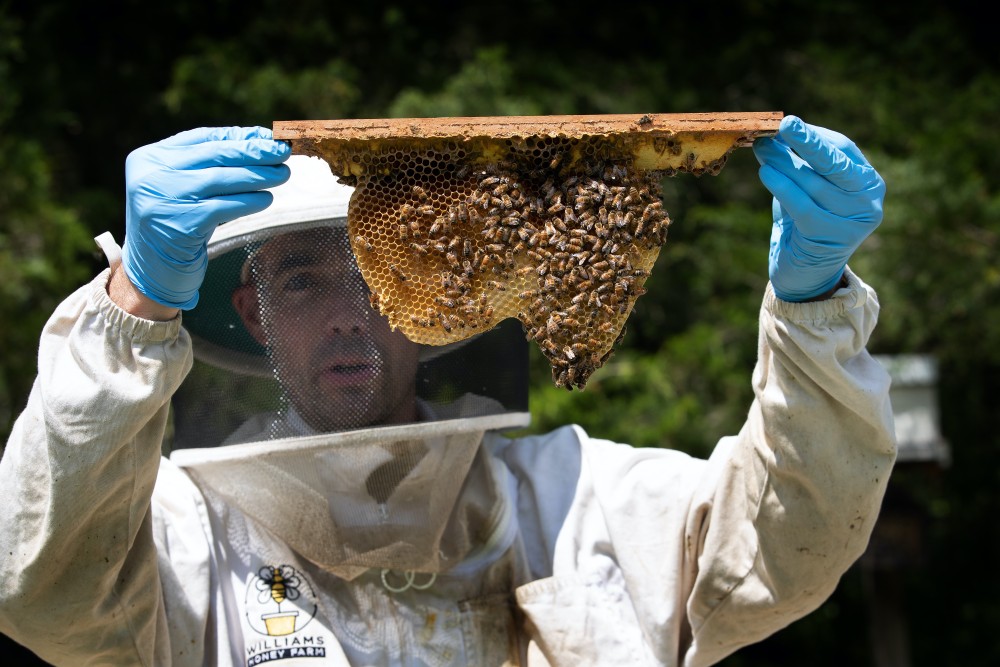How United Methodists around the world find faith through beekeeping

Jay Williams says he never feels more connected to the earth and to God than when he’s “surrounded by a million venomous insects.”
While Williams’s statement may surprise some people, he and other United Methodist apiarists—or beekeepers—say delving into the complex world of bees has deepened their faith.
“When you’re working with these little insects and they are doing all these things, you see all this wonderment,” said Williams, a member of Christ United Methodist Church in Franklin, Tennessee, and the founder of Williams Honey Farm. “It’s like a tap on the shoulder that says, ‘Hey, there’s more than you think. Celebrate it and tell as many people about it as you can.’”




